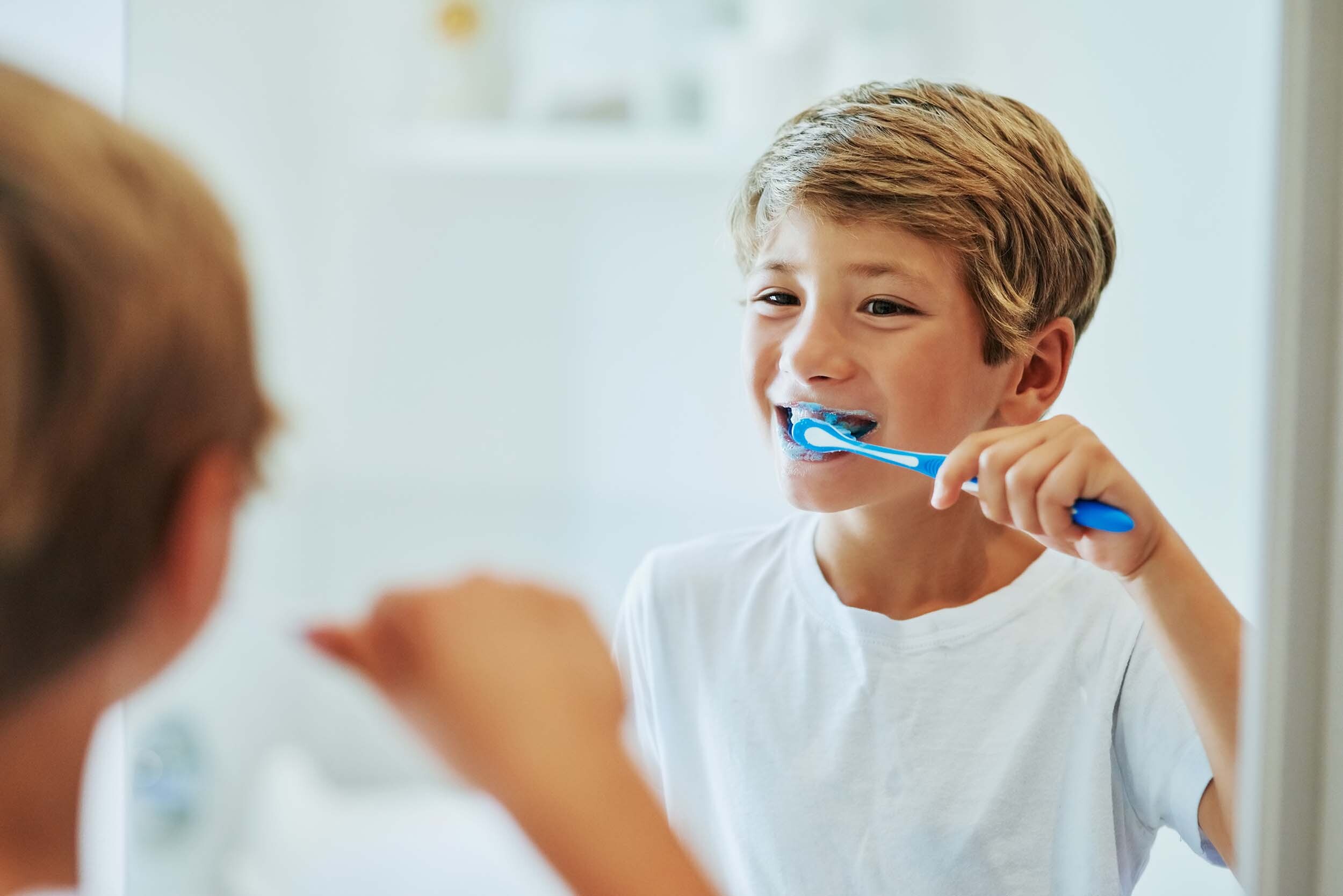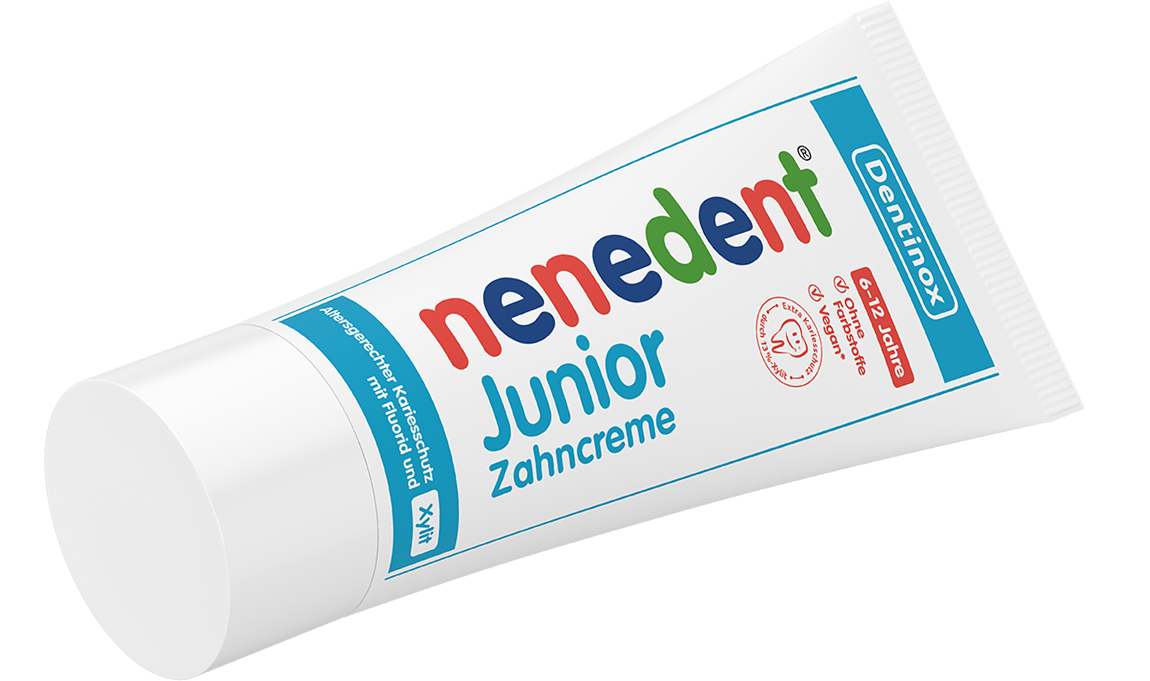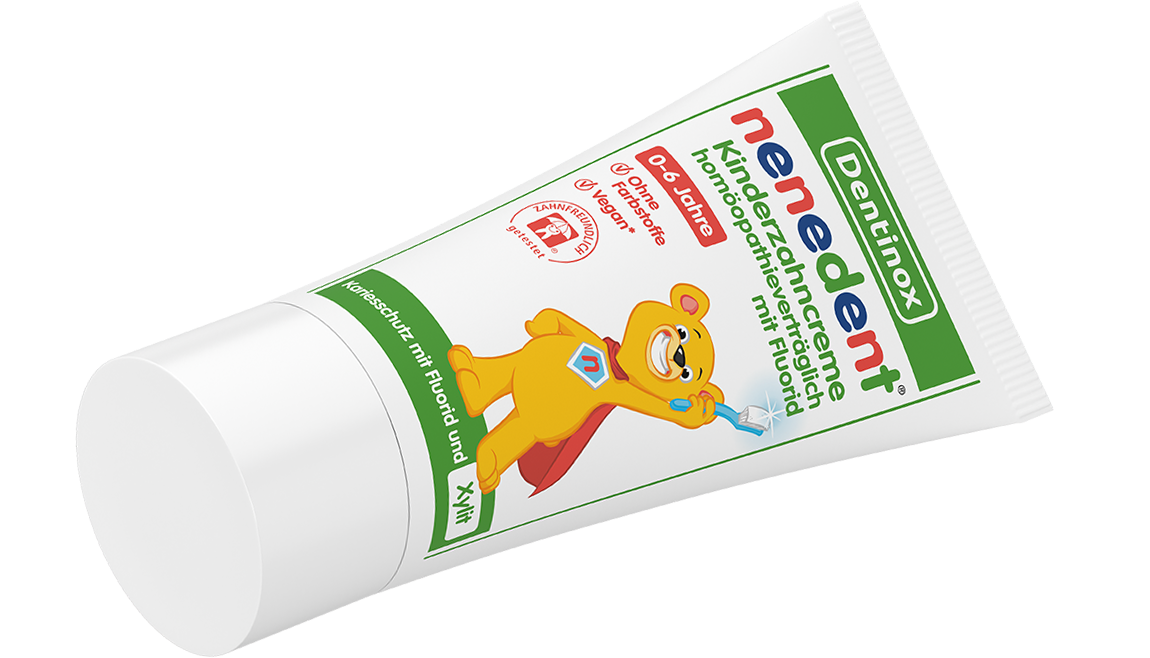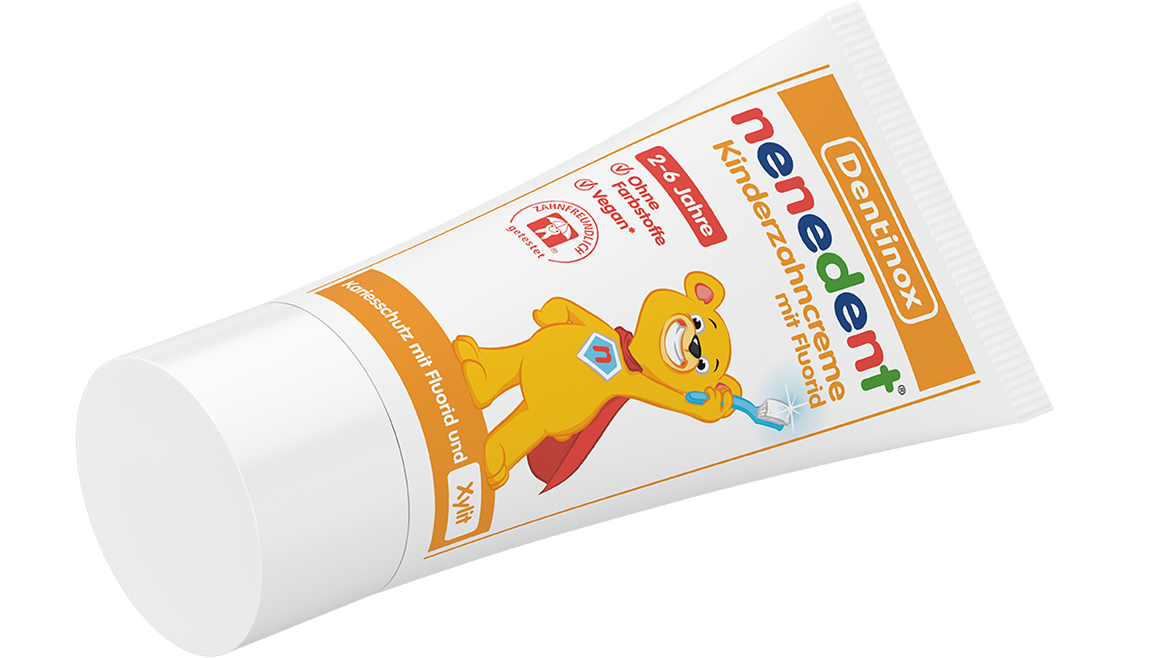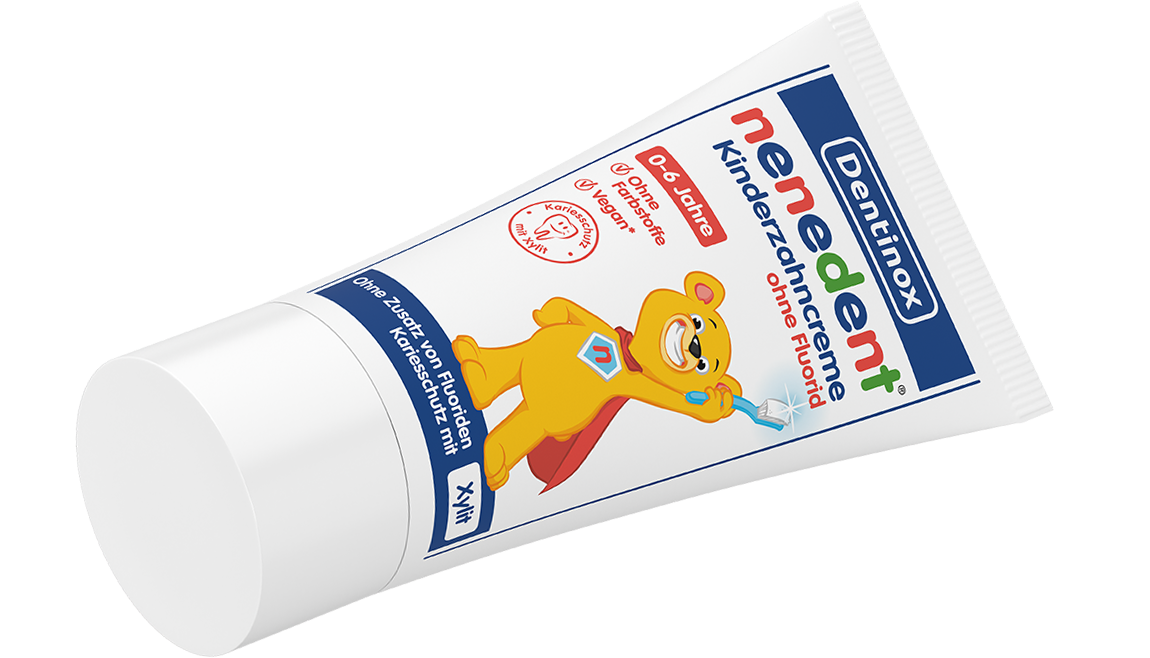Welcome to the fascinating world of milk teeth! These little teeth play a big part in our children's lives, even if they are often overlooked. In this article, we take you on a journey through the development, care and natural life cycle of milk teeth. You will understand why these teeth are more than just placeholders and how you can best support their health.
The 1x1 of milk teeth
Milk teeth are the first teeth to appear in a child's mouth. Although they eventually fall out, they have an important function. They enable the child to learn to chew and speak properly and prepare the jaw for the permanent teeth.
How many milk teeth do you have? Counting and getting to know each other
A child has a total of 20 milk teeth – ten in the upper and ten in the lower jaw. These teeth are divided into incisors, canines and molars. The molars play a crucial role in chewing and grinding food.
Milk teeth and speech development: Learning to speak made easy
Milk teeth are also important for speech development. They support the tongue and lip movements that are necessary to form sounds and speak words. Without healthy milk teeth, learning to speak could be more difficult.
Milk teeth as placeholders: The Guardians of the Smile
Milk teeth keep the space free for the permanent teeth and ensure that they are correctly aligned later on. If a milk tooth is lost prematurely, this can lead to a lack of space or malocclusion.
Development phases of milk teeth
The first milk teeth usually come through between the sixth and tenth month of life. This can vary from child to child, but the lower central incisors often come through first.
Milk Teeth Sequence: A dental puzzle that completes itself
The order of teeth coming through is usually the same: The incisors come first, followed by the first molars, the canines and finally the second molars. By the age of three, all 20 milk teeth are usually present.
Individual differences in teeth coming through
It is completely normal for each child's teeth to erupt differently. Some children have teeth as early as four months old, while in others the first tooth only appears after one year.
Read our guide When do babies teethe? Everything you need to know about teething, to find out more about first teeth and teeth coming through.
Tooth decay in milk teeth
Tooth decay in milk teeth occurs when bacteria in the mouth convert sugar into acid, which attacks the tooth enamel. Frequent snacking and inadequate dental care increase the risk.
Prevention of tooth decay in milk teeth: A shield against plague
Regular tooth brushing, a healthy diet and regular visits to the dentist are the best ways to prevent tooth decay. Brushing should be carried out at least twice a day from the first tooth. For example, use the nenedent baby toothpaste with fluoride to give your baby's first teeth the best possible protection.
Treatment of tooth decay in milk teeth: When the tooth fairy needs help
If tooth decay occurs despite all precautionary measures, early treatment is important. Fillings and sometimes even crowns may be necessary to save the tooth and stop the tooth decay from spreading.
Early detection of tooth decay in milk teeth: An early inspection saves teeth
Early visits to the dentist help to recognise and treat problems in good time. This can prevent major damage and ensure the long-term health of the teeth.
When do milk teeth fall out?
The loss of milk teeth follows a natural and predictable pattern. With a dental calendar, you can easily keep an eye on the process and ensure that everything goes according to plan. If deviations occur, such as very early or late falling out, it is advisable to consult a dentist. This will ensure that your child's teeth develop optimally and that the permanent teeth get off to the best possible start.
The natural cycle
Milk teeth usually begin to fall out around the age of six. This is the starting point for the transition to permanent teeth.
When do which milk teeth fall out? An on-track farewell
The order in which the milk teeth fall out is similar to the order in which they appear. The central incisors fall out first, then the lateral incisors, followed by the molars and canines.
Wobbly tooth: What to do if the milk tooth does not fall out?
A "wobbly tooth" can occur at the age of five. At this age, the milk teeth slowly begin to loosen to make room for the permanent teeth. However, if a milk tooth does not fall out or wobbles for a very long time without a new tooth moving in, this is referred to as a "restrained milk tooth". In such cases, it makes sense to visit a dentist to ensure that your child's teeth are developing normally and that the permanent teeth have sufficient space.
What happens if milk teeth fall out too early?
- Lack of space for permanent teeth: If a milk tooth falls out too early, the neighbouring tooth can move into the gap, which can lead to a lack of space for the permanent tooth. This could later lead to misaligned teeth and the need for orthodontic treatment.
- Problems with chewing and speaking: Milk teeth play an important role in chewing and speaking. Losing them too early can affect eating and speech behaviour.
What happens if milk teeth fall out too late?
- Delay in permanent teeth coming through: If milk teeth do not fall out in time, the permanent teeth cannot come through normally. This can lead to an uneven tooth position or overlapping.
- Increased risk of tooth decay: A milk tooth that remains in the mouth longer than normal is more susceptible to tooth decay and other dental diseases, as it is not designed for such a long service life.
Care and hygiene of milk teeth
Proper care of milk teeth: The foundation for a healthy smile
Thorough care is important from the very first tooth. Regular tooth brushing with a child-friendly toothpaste lays the foundation for lifelong dental health. Nenedent children's toothpaste with fluoride is ideal for children aged 2-6 years.
Brushing teeth for the first time: Tips for using a toothbrush for the fist time
Using a toothbrush for the first time should be soft and done in small circles so as not to damage the sensitive milk teeth. Make brushing your child's teeth a playful experience to get them used to it.
Choosing the right dental care products: Weapon or tool?
In addition to the toothbrush, choosing the right toothpaste is crucial. This should contain fluoride to protect the teeth from tooth decay. Avoid toothpastes with a high abrasion value to protect the delicate tooth enamel. Nenedent Junior toothpaste is a good choice for older children.
Why does my child hate brushing their teeth? Helpful tips for relaxed tooth brushing
It is quite normal for many children to refuse to brush their teeth at first. The unfamiliar procedure can be unpleasant and even a little frightening. But don't worry – there are numerous ways to make brushing your child's teeth more pleasant:
- Make it playful: Turn brushing your teeth into a game! Sing a song, count the teeth together or tell a little story about the "tooth robbers" that need to be brushed away. Use our Playlist with toothbrushing songs for more fun when brushing your teeth.
- Let your child help decide: Give your child the opportunity to choose their own toothbrush and toothpaste. With a toothbrush in your favourite colour and a toothpaste with a pleasant taste, brushing becomes much more attractive.
- Be a role model: Children learn by imitation. If they see that you brush your teeth regularly and with pleasure, they will be more willing to do the same.
- Reward system: Create a reward plan where there is a small prize after a week of successful brushing. This provides additional motivation for many children.
- Short but regular cleaning times: Try to keep the cleaning time short, but make sure it is regular. Two minutes can feel like an eternity, so it is better to divide the time into smaller sections at the beginning.
With a little patience and creativity, brushing your teeth can become a pleasant routine. It is important that your child learns that brushing their teeth is an essential part of daily care
Conclusion
Caring for and protecting milk teeth is crucial for your child's development. By maintaining good oral hygiene and scheduling regular visits to the dentist, you lay the foundation for a healthy smile – for life.


